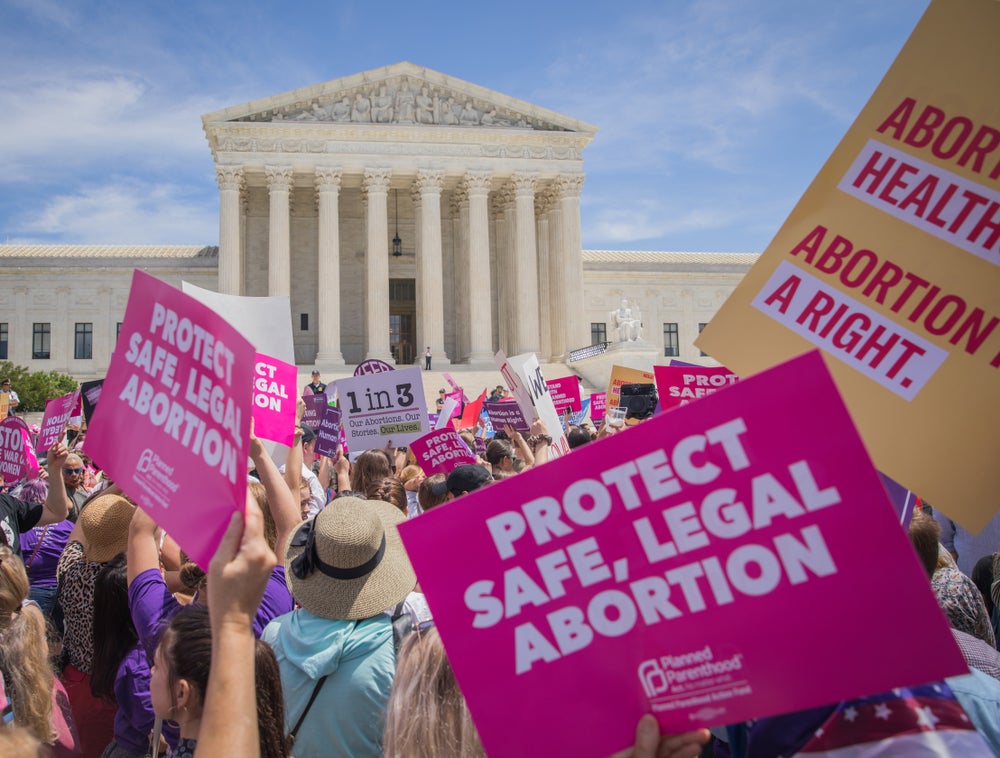
Not only were abortions no longer a constitutional right after the Supreme Court overturned Roe v. Wade in June, 2022, but in as many as 14 states, they became a criminal offence.
A ban on abortions does not stop the procedure from happening, instead it pushes women to seek advice and medication online rather than in person, leaving behind a digital footprint that could be used in abortion-related court cases.
A 2020 study into the ‘Digital Abortion Diary’ by Cynthia Conti-Cook states that whilst seeking medical advice online gives patients the “feeling of privacy, internet use is actually easily surveilled.” Conti-Cook asserts that every search and click made by a patient can leave a trail for prosecutors to track in order to prove intent.
In the aftermath of the overturning of Roe v. Wade, more Americans downloaded menstrual period tracking apps after the Supreme Court’s decision, despite calls to delete them. In a post Roe v. Wade America, mHealth apps (mobile health apps) could become a lifeline for people where Planned Parenthood is no longer an option for those seeking abortion care or advice.
GlobalData research also found that an overwhelming 70% of US physicians would recommend the use of femtech to their patients, but is this endorsed technology keeping their patients’ data safe?
The rise of anonymous modes
One of the benefits of using mobile health apps is the accuracy of tracking fertility and menstruation. But this accuracy and amount of data could now be used to build a case around a person whose app may indicate that they have had an abortion.
Immediately after the Supreme Court’s decision, the menstrual tracking app, Stardust, faced criticism over its privacy policy. Despite being at the top of the app store in the days following Roe v. Wade’s overturning, Vice reported that Stardust’s original privacy policy stated the app would comply with requests for information made by law enforcement “whether or not legally required.” In response to Vice’s article, Stardust updated its policy so that any health data it is legally required to share will be anonymised and only “when legally required.”
Other apps have released entirely anonymous account modes.
When asked for comment Sue Khan, vice president of privacy at Flo Health, stated that “when the Supreme Court’s ruling was initially leaked in May, we started considering its potential impact.”
Start-up app, Euki, only requires users to sign up with a four number passcode and does not ask for their phone number or email address. The app also allows users to show a false screen if they type in ‘0000’ as their PIN in case of scenarios where users may be forced to show their data.
Planned Parenthood’s own app, Spot On, allows users to choose between creating an account or using the app anonymously, and menstrual tracking app, Natural Cycles, has announced that it will also be releasing an anonymous mode as well.
Data protection legislation
There is research suggesting anonymised data can be reidentified, in which case, anonymising user data may not be a deterrent to potential information requests from prosecutors.
Femtech is still a developing market, and mHealth apps are influenced by the data legislation of the country in which they were developed or store their data, meaning that even US users of Berlin-based Clue are protected under GDPR.
Clue has made data privacy a crucial part of its brand identity and in Clue’s official response to the overturning of Roe v. Wade it states its primary legal duty to not disclose any confidential data to US Courts.
Flo Health also said that it partnered with Cloudflare to implement an Oblivious HTTP Standard that ensures the entire process of handling data is anonymous. This means that “should Flo receive an official request to identify a user by name or email” it would not be able to satisfy such a request. So far, Flo states that it is the only female health app to implement this level of security.
Privacy is a longstanding concern for mHealth apps, but the overturning of Roe v. Wade has desperately increased user anxiety over who is handling and using their data.
This is particularly true in states where abortion is criminalised and bounty laws exist to encourage civilian action towards those who have had abortions, it is now more crucial than ever that mHealth apps are transparent to their users about data security.







